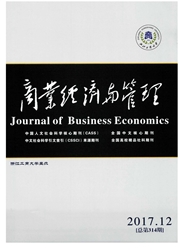

 中文摘要:
中文摘要:
随着市场经济的快速发展,中国消费文化也在变迁。尽管越来越多的学者和企业已关注到了消费文化变迁的重要作用,但是目前多数对于消费文化变迁的相关研究还停留在理论描述的定性研究阶段。文章基于霍夫施泰德的文化模型并结合中国消费文化变迁的研究成果严谨地开发了消费文化变迁构念的测量量表,并系统地研究了中国消费文化变迁对冲动购买的影响。研究结果显示消费文化的五个维度,即权力距离、个人主义、不确定性规避、社会的男性化程度和长期导向的变迁都与冲动购买正相关。文章的理论贡献在于首次系统开发并形成了关于消费文化变迁的量表,从而实现了对中国消费文化变迁的定量测量,并进一步系统地研究了消费文化变迁对冲动购买的影响。
 英文摘要:
英文摘要:
According to the development of market-oriented economy, there are more and more academic researchers as well as managers paying attention to consumer culture change. However, little empirical study about consumer culture change has been found in the previous literature. In order to fill up this gap, on the basis of Hofstede's cultural theory we developed a consumer culture change scale in the context of Chinese consumers so that consumer culture change can be measured quantitatively. We further study consumer culture change on impulse buying. Results show that, all the five consumer culture change dimensions: power distance, individualism, masculinity, uncertainty avoidance, and long-term orientation are positively related to impulse buying. The findings of our paper is the establishment of the basis for further quantitative research into consumer culture change and the construction of a theoretical framework of consumer culture change on impulse buying.
 同期刊论文项目
同期刊论文项目
 同项目期刊论文
同项目期刊论文
 期刊信息
期刊信息
